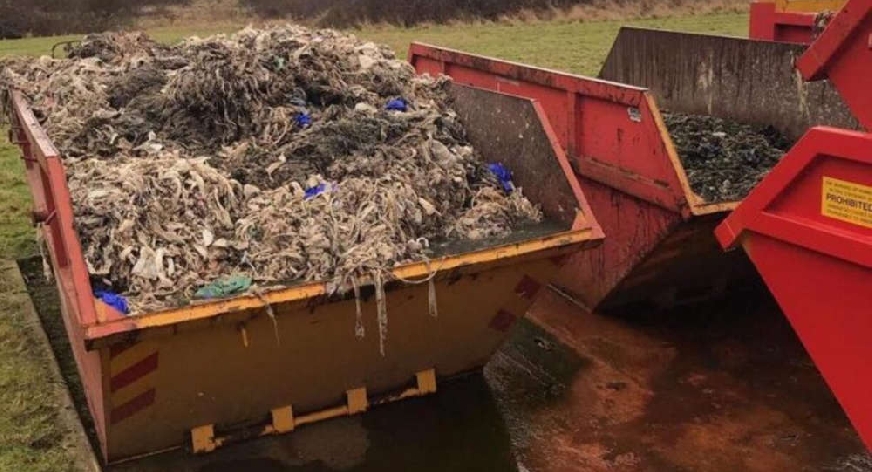
"I have been clear that a step change is needed to protect our waterways from pollution."
Severn Trent Water supports the announcement that the government will ban all wet wipes containing plastic.
Environment Secretary Steve Barclay said: "Wet wipes containing plastic are polluting our waterways and causing microplastics to enter the environment. Defra will introduce legislation before the summer recess to crack down on this unnecessary source of pollution, following our successful single-use carrier bag charge and ban on microbeads in personal care products.
"I have been clear that a step change is needed to protect our waterways from pollution. The ban builds on a raft of actions already taken to protect our waterways and hold water companies accountable - including accelerating investment, putting water company fines back into the environment and quadrupling the number of inspections of water company sites.
Severn Trent Water has said that wet wipes are the main offender in forming blockages and fatbergs in the sewer network and that even some products that say ‘flushable’ or ‘biodegradable’ on the packaging don’t break down like toilet paper.
Grant Mitchell, Blockages Strategy Lead at Severn Trent, said: “Every year our team removes 30,000 blockages from across our waste network, and each week we pull two and a half tonnes of wet wipes from our sewers, which is the same weight as a Range Rover.
“These blockages can cause costly problems for customers and the environment and can be major contributing factor in the formation of fatbergs.
“We absolutely welcome the government’s announcement as it will reduce plastics entering the environment through wastewater treatment sites, meaning that waterways and beaches will benefit from this ban.
“Whilst it’s good that there’s overwhelming public support for these proposals, what’s really important is for everyone to remember that only the three p’s - pee, poo and paper are flushed down the toilet. Ideally wipes, whatever they are made of, will go straight in the bin which will help the environment.”
An 18-month transition period will start from when legislation is passed to allow businesses time to prepare for the changes.


 Airport celebrates 60th anniversary
Airport celebrates 60th anniversary
 Serious collision between a car and cyclist near a Nuneaton business park
Serious collision between a car and cyclist near a Nuneaton business park
 People treated for smoke inhalation after fire in Nuneaton
People treated for smoke inhalation after fire in Nuneaton
 Thousands of pounds worth of equipment donated to George Eliot Hospital
Thousands of pounds worth of equipment donated to George Eliot Hospital
 Appeal as man has extensive leg injuries after collision in Bedworth
Appeal as man has extensive leg injuries after collision in Bedworth
 Family of man killed on M1 pay tribute to ‘beloved dad, stepdad, partner, son, grandson and brother’
Family of man killed on M1 pay tribute to ‘beloved dad, stepdad, partner, son, grandson and brother’







